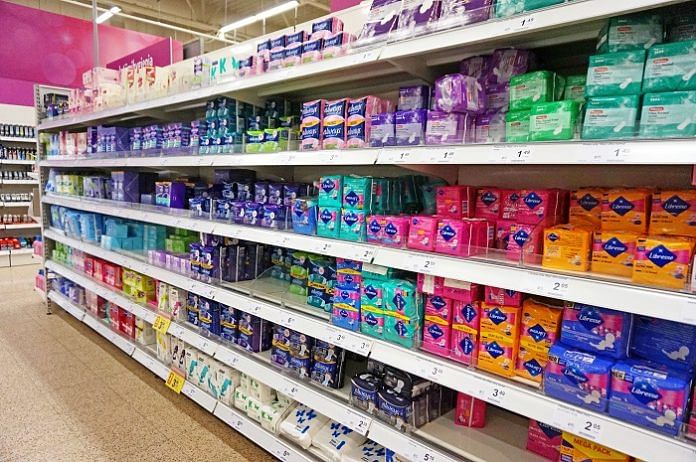New Delhi: The coronavirus lockdown has severely restricted access to menstrual hygiene for several women in India and Africa due to the closure of educational institutions and community organisations, a recent rapid survey reveals.
The survey, conducted by the Menstrual Health Alliance of India, was carried out remotely among 67 organisations that are involved in various levels of relief work during the coronavirus crisis. Forty five of these organisations are based in India, 16 from the Africa region and six from other countries. The survey report does not mention the countries studied.
It was aimed at assessing the status of production, distribution and access to menstrual hygiene products in order to understand the challenges faced by women, especially during the Covid-19 lockdown that has restricted access to many essential items.
MHAI released the survey at an online workshop that was organised by Dasra, a strategic philanthropy organisation, in partnership with Change.org on 21 May 2020. Aside from an MHAI representative, the panel consisted of members from International Centre for Research on Women (ICRW) and campaigners from Change.org.
Also read: From unpaid domestic care work to menstrual hygiene – Covid’s double whammy for Indian women
Access to menstrual hygiene difficult during lockdown
According to the researchers, 62 per cent respondents claimed that access to menstrual hygiene products via regular channels had become challenging in the communities they worked for.
Furthermore, an additional 22 per cent said that they had absolutely no access to these products.
Tanya Mahajan, Development Solutions Coordinator of MHAI said, “Production and distribution of information and products to manage menstrual hygiene demands of women and girls is a constant challenge and has been exacerbated by the Covid-19 pandemic.”
The survey also revealed that manufacturing units had also been severely affected by the lockdown.
“50 per cent of the small and medium scale manufacturers reported that they are unable to operate at capacity and 25 per cent are not operational at all,” said Mahajan.
Several women depend on school-based supply for pads
Before coronavirus outbreak, 89 per cent organisations were using community-based networks to distribute menstrual hygiene products.
Now, after the outbreak, 67 per cent of these organisations have been forced to pause normal operations. The workshop called for the urgent need of planning ahead for a severe shortfall in production and distributions of menstrual products.
According to Mahajan, “Most adolescent girls from low income household depended on school-based supply in government schools. Given that schools have been closed since the lockdown, they have started using cloth pads. We need to look at how reusable product choices like cloth pads and menstrual cups can be promoted with information on maintenance of hygiene in order to build resilient MHM practices.”
Some of the possible solutions for coronavirus relief work discussed in the workshop were effective management to ensure access to menstrual products, short-term distributions through relief centres, increase dependence on reusable products (such as menstrual cups), engaging the local administration for unlocking storage in schools etc.
Also read: ‘Absurd, disservice‘ — how women are reacting to Tharoor’s petition on menstrual leave



